Word Recognition Alphabet Worksheets for Ages 4-5
15 filtered results
-
From - To
Discover our engaging Word Recognition Alphabet Worksheets tailored for children ages 4-5! These interactive worksheets are designed to enhance young learners' literacy skills through fun activities and vibrant illustrations. By focusing on word recognition, kids will build essential vocabulary and phonemic awareness in an enjoyable way. Each worksheet encourages creativity and independent thinking, making it perfect for both home and classroom use. Foster a love for reading as your child explores letters, words, and their meanings while developing critical early literacy skills. Start their learning journey today with our thoughtfully crafted resources, and watch them thrive as confident readers!
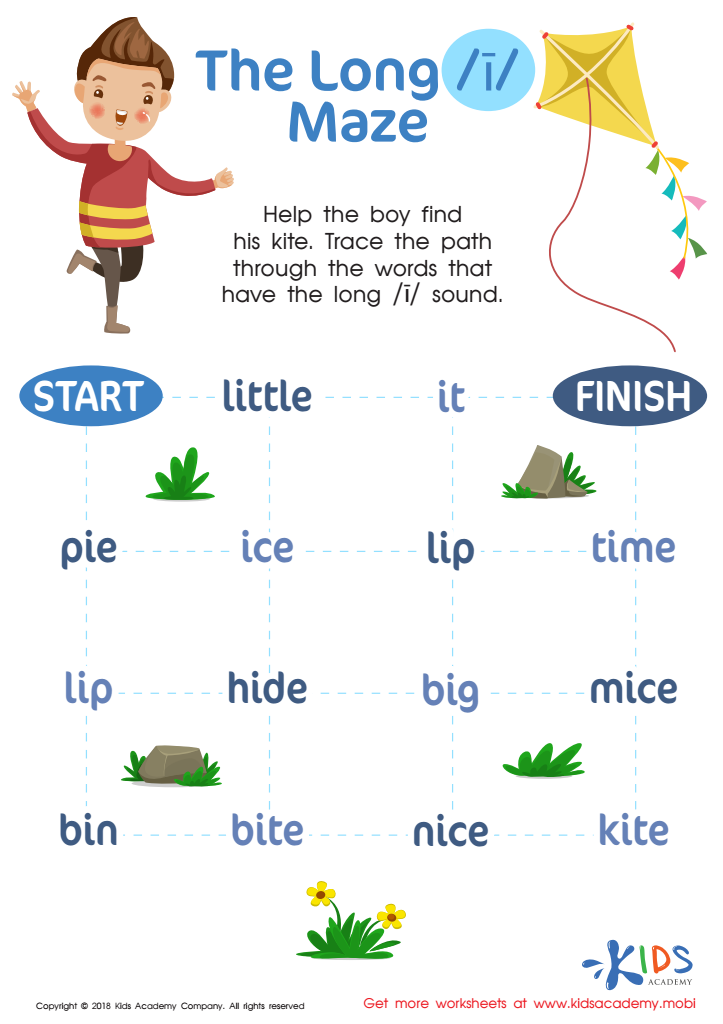

The Long I Maze Reading Worksheet
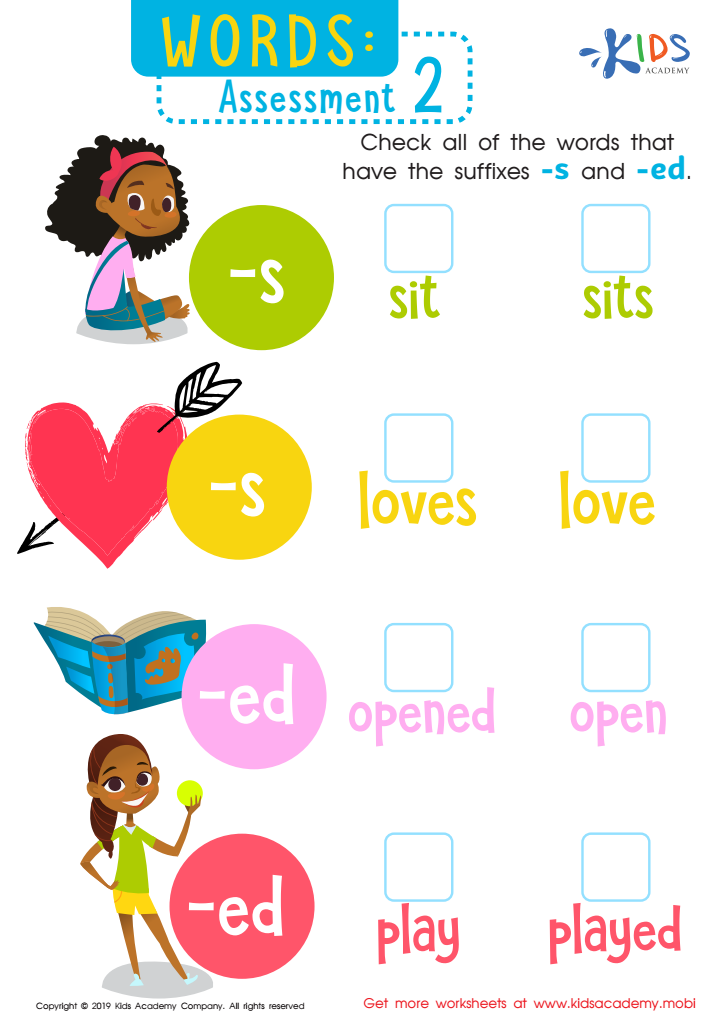

Words: Assessment 2 Worksheet
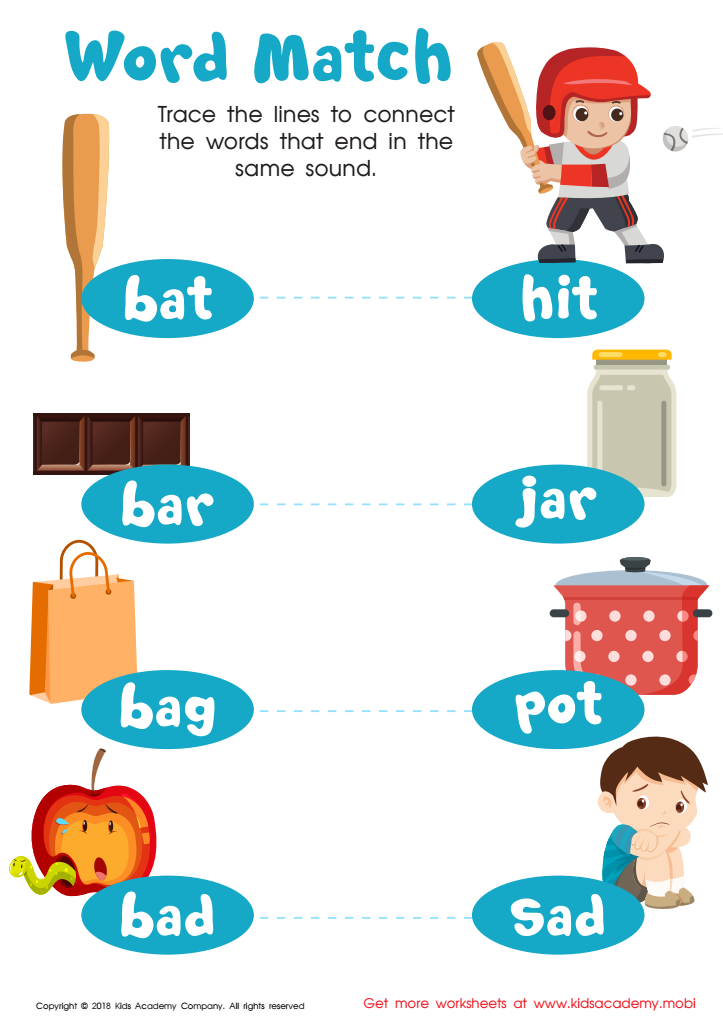

Word Match Reading Worksheet
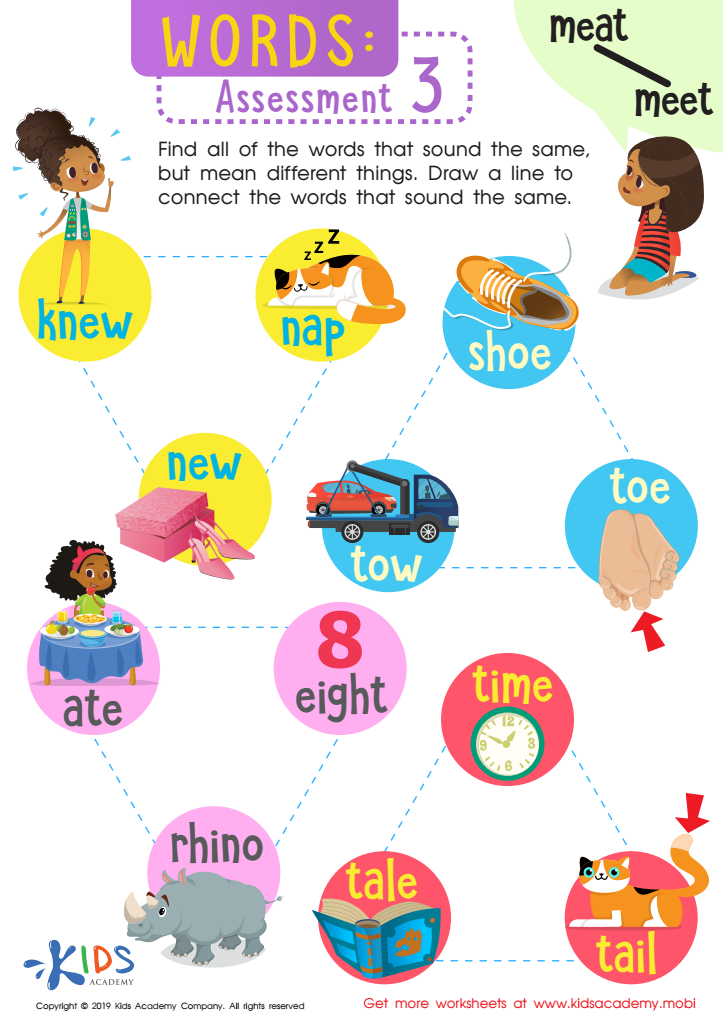

Words: Asessment 3 Worksheet
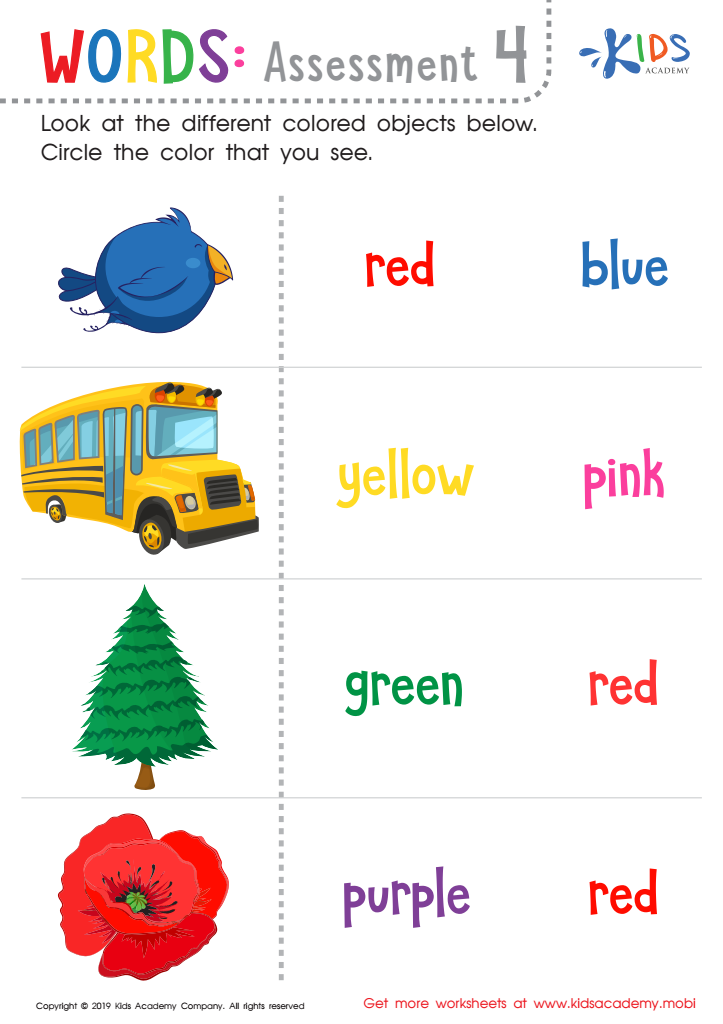

Words: Assessment 4 Worksheet
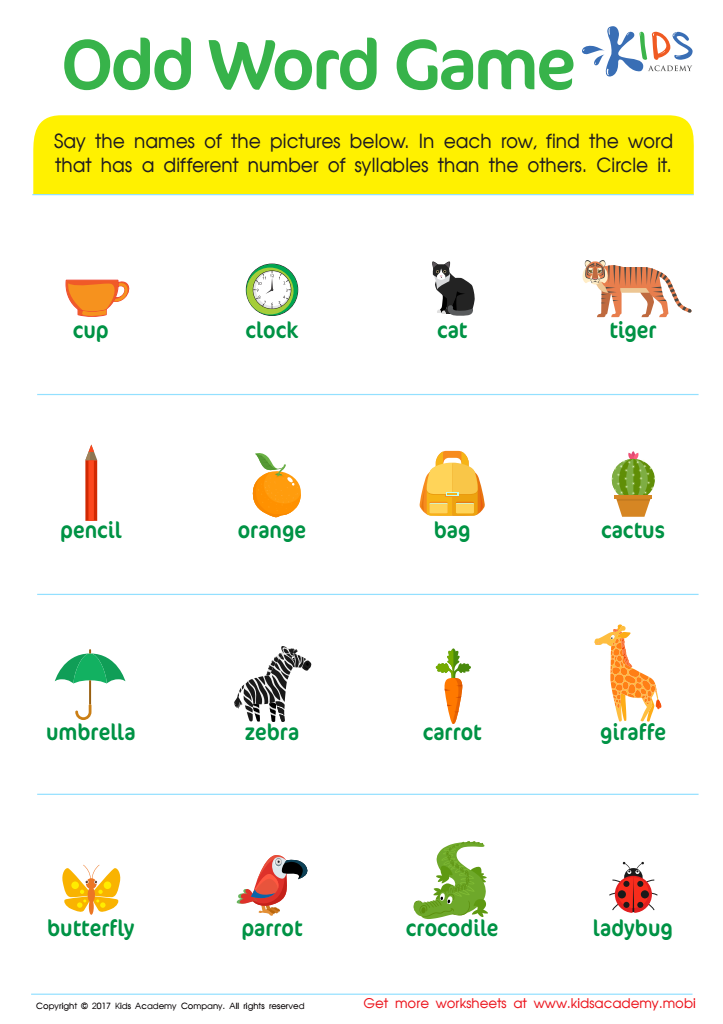

Count Syllables: Odd Word Game Worksheet
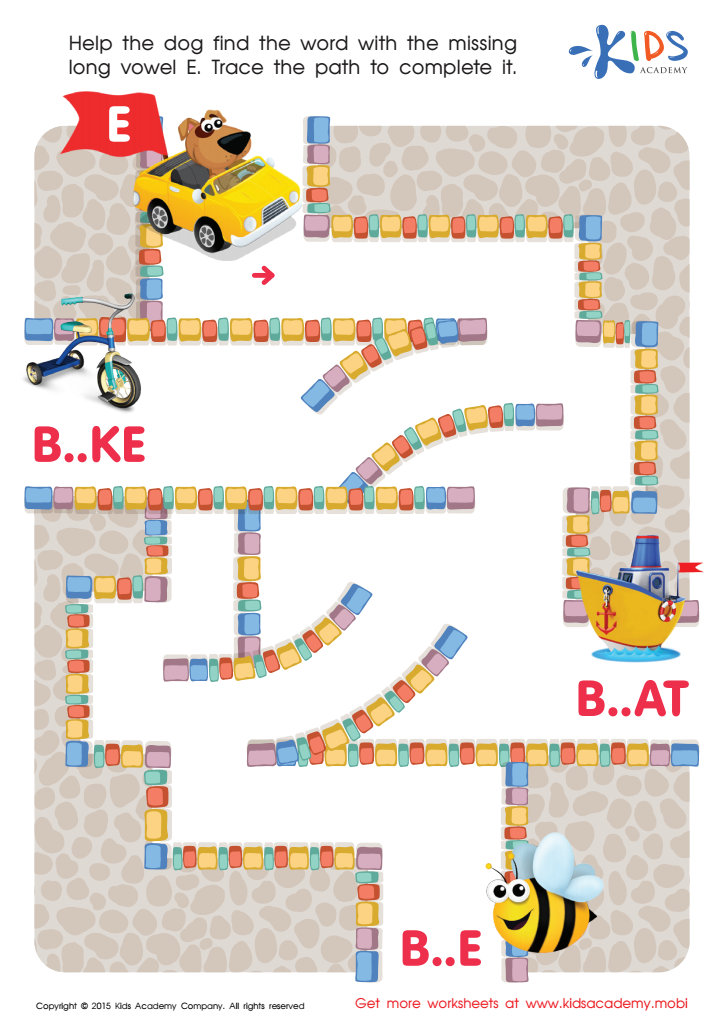

Long Vowel Sound E Worksheet
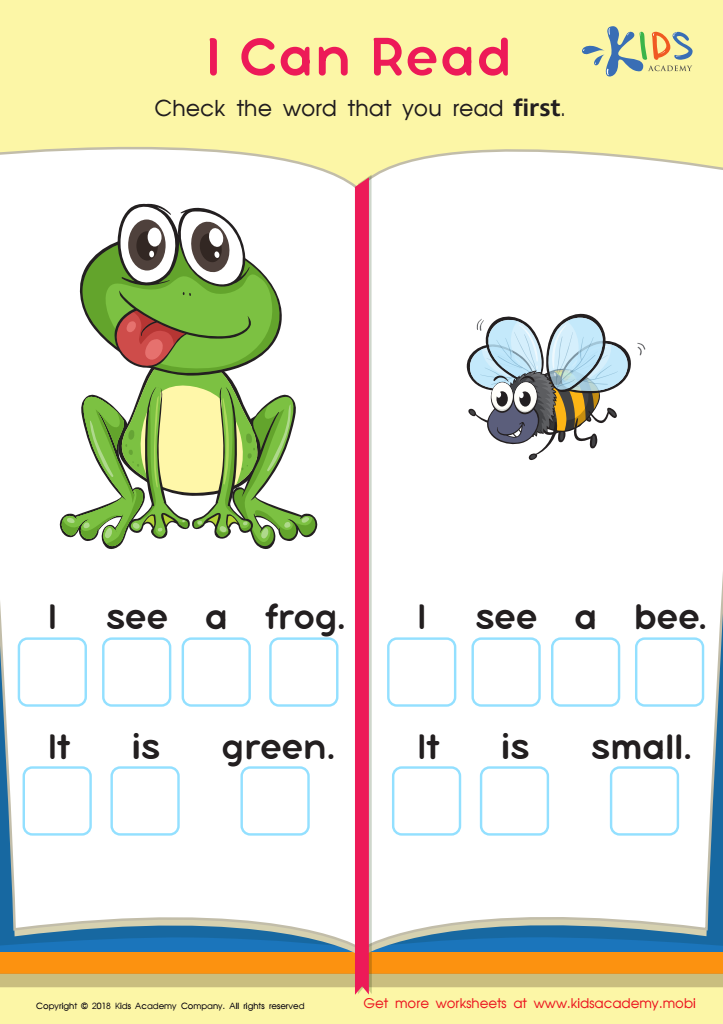

I Can Read Worksheet
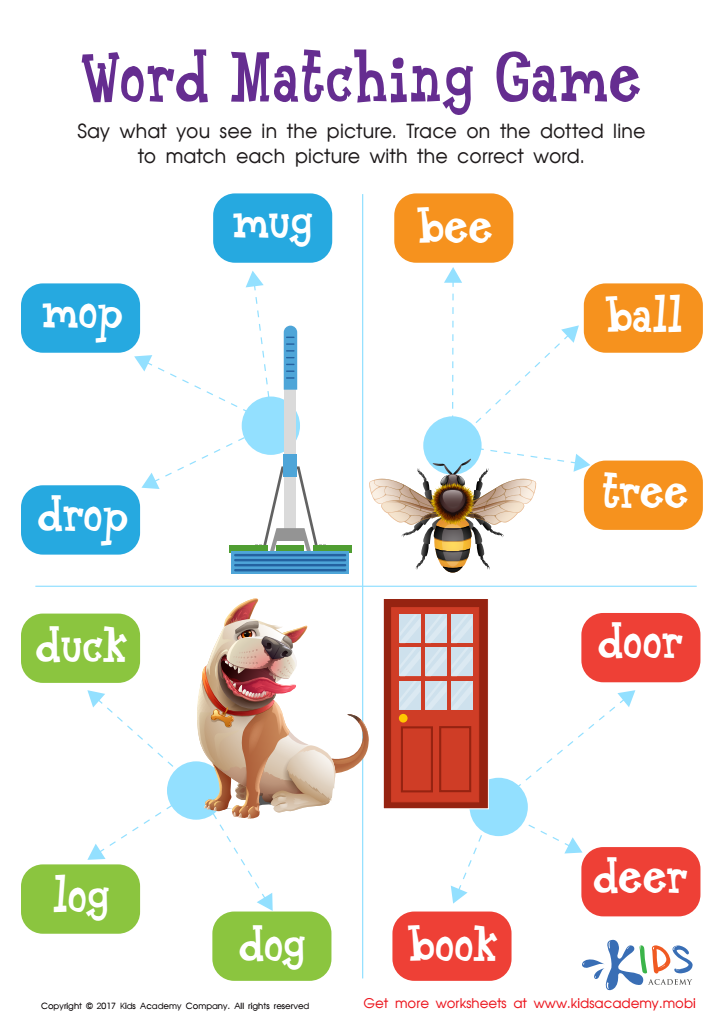

Word Matching Game Worksheet
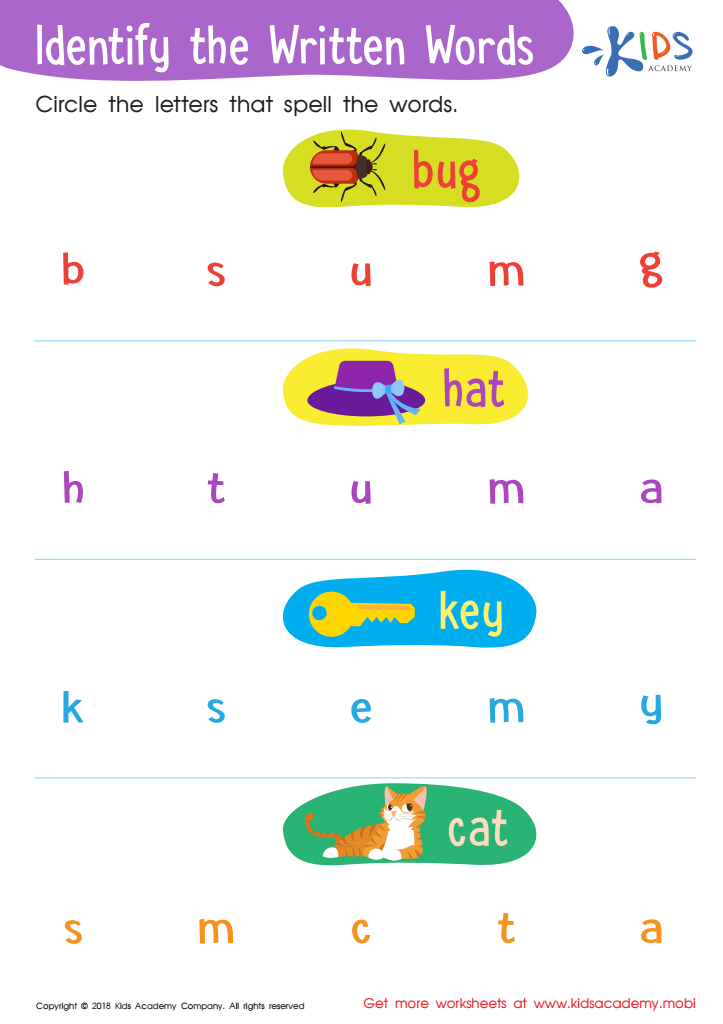

Identify the Written Words Worksheet
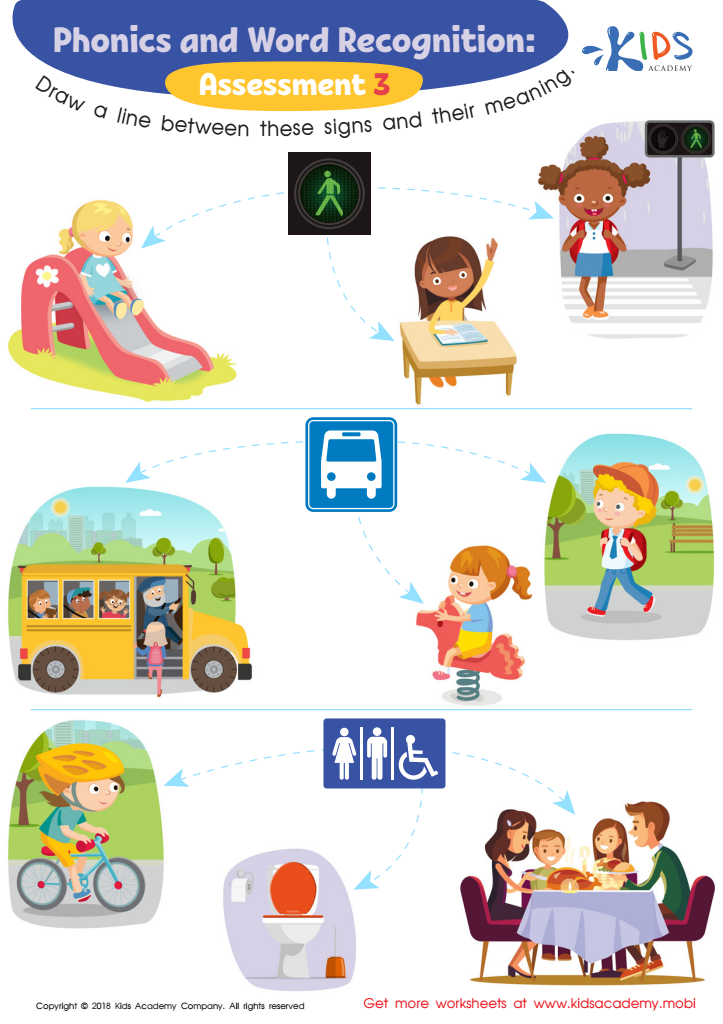

Phonological Awareness: Assessment 3 ELA Worksheet


Words with sound f Reading Worksheet
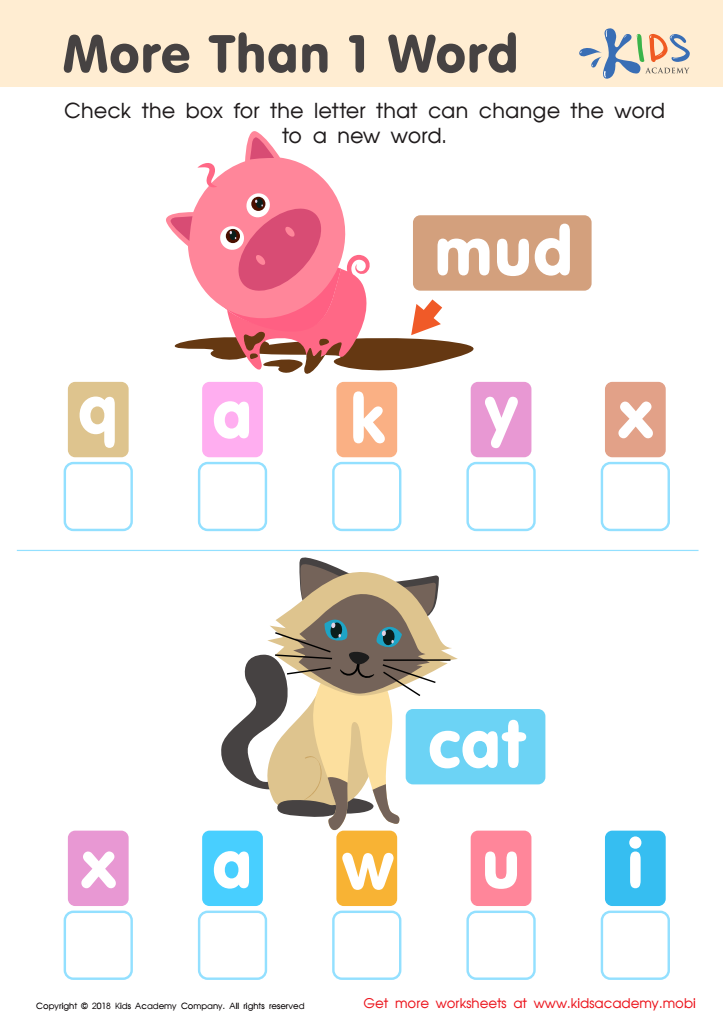

More than 1 word Worksheet
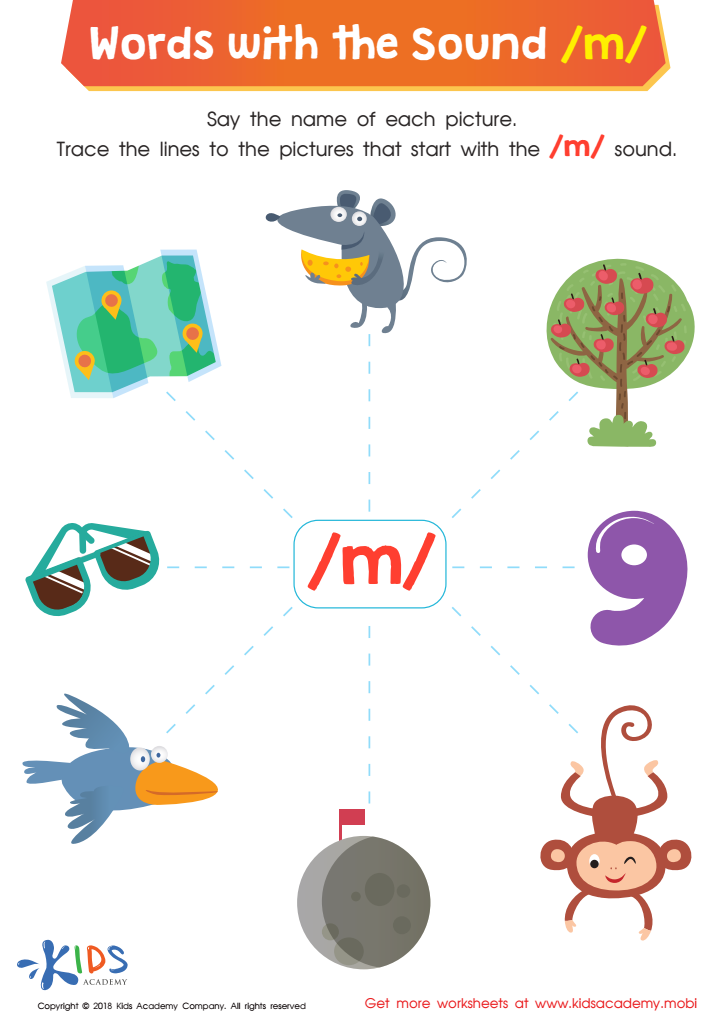

Words with Sound M Reading Worksheet
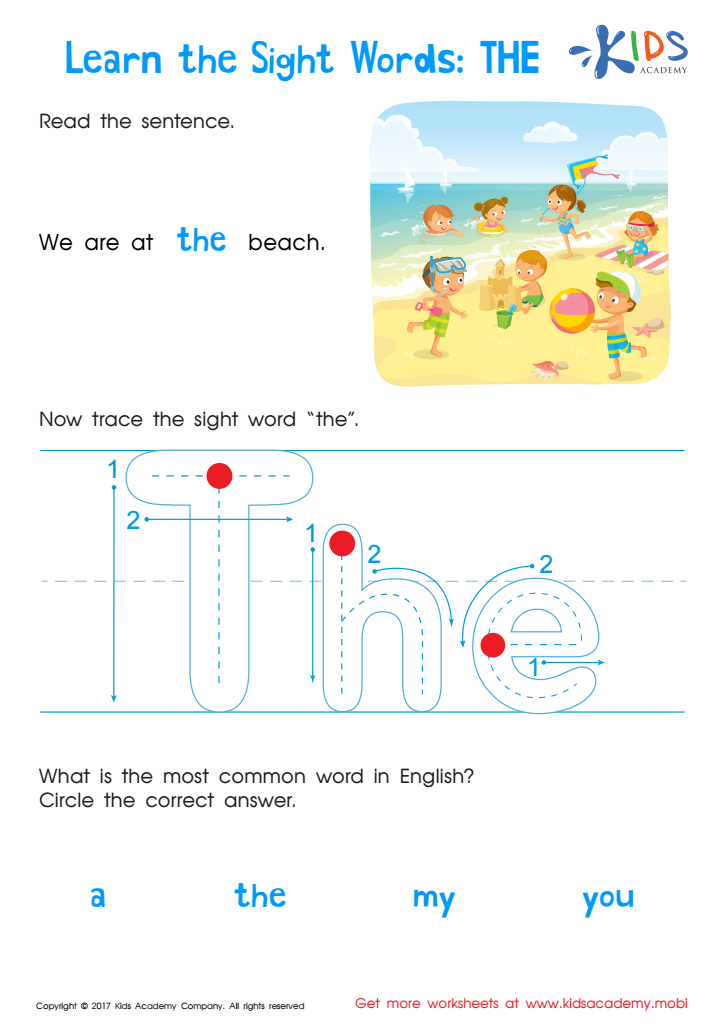

Sight Words: The Worksheet
Word recognition is a crucial skill for children aged 4-5, serving as the foundation for reading and literacy. During this stage, children not only learn to identify letters and sounds but also begin to recognize whole words. This skill is pivotal because it enhances their ability to decode language, promotes confidence in reading, and fosters a love for literature.
Parents and teachers should care about word recognition for several reasons. Firstly, early mastery of word recognition supports vocabulary development, as children can better understand and internalize new words within context. Additionally, strong word recognition skills accelerate reading fluency, allowing children to progress more smoothly through increasingly complex texts, which is vital for academic success.
Moreover, children who struggle with word recognition may develop frustration and anxiety towards reading, leading to a negative cycle where they shy away from literacy activities. By prioritizing word recognition, parents and teachers can create a supportive environment that encourages practice and engagement.
Lastly, fostering Word Recognition enhances communication skills and boosts cognitive development, laying the groundwork for lifelong learning. Investing time in this critical stage early ensures children are well-equipped for future educational challenges, helping them become proficient readers and confident communicators.

 Assign to My Students
Assign to My Students

















